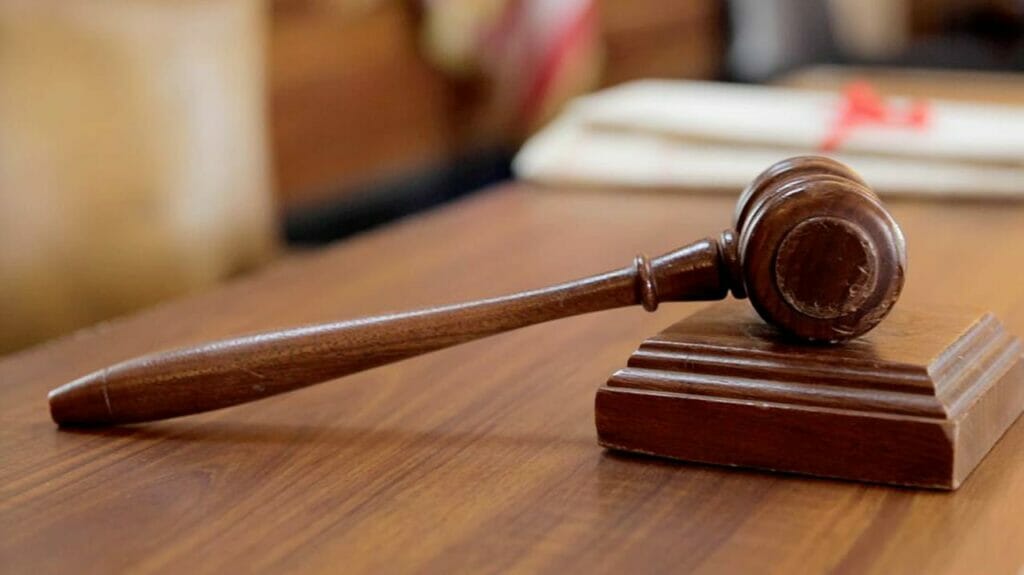A retired air commodore, Umar Mohammed has been discharged and acquitted by a federal high court sitting in Abuja over money laundering charges.
Mohammed was, in 2020, re-arraigned alongside his company, Easy Jet Integrated Services Limited, before Inyang Ekwo, the judge, on charges bordering on money laundering, illegal possession of firearms and possession of official documents without lawful authority.
Recall that the federal government in March 2021 had tendered before a federal high court in Abuja, $1,030,000 it allegedly recovered from Mohammed’s residence.
The office of the attorney-general of the federation, who was the prosecution, had called one witness, Stephen Olatubosun, an official of the Department of State Service (DSS).
Mohammed had testified as the only defence witness and told the court that he is a businessman dealing in oil and gas, both upstream and downstream, aircraft charter and aviation, as well as air cargo, both local and international.
He also submitted that the money found in his residence was his personal funds used for his business.
Delivering judgment on Friday, Ekwo, the presiding judge, held that the prosecution failed to prove the essential ingredients of the charge.
“The cardinal principle of law is that the commission of a crime by a party must be proved beyond a reasonable doubt,” he held
“This is the law laid down in Section 138 (1) of the Evidence Act. The burden never shifts.”
Ekwo held that since the prosecution failed to cross-examine the defendant after his testimony, it amounts to conceding to the evidence averred.
“The prosecution did not cross-examine DW1 after his evidence-in-chief; instead, applied to close his case,” Ekwo said.
“I agree with the learned silk of counsel for the defendants that the evidence of DW1 not having been controverted is deemed as admitted. This is the position of the law.
“The position of the law as settled in many authorities is that evidence adduced in court, that is relevant to the issue in controversy, and has neither been challenged nor successfully debunked becomes good and credible evidence, which ought to be relied upon by a learned trial judge.
“In criminal cases, failure to cross-examine a witness on vital evidence elicited during examination in chief is fatal as the prosecution has no other method of disputing such witness or his evidence save by cross-examination.
“On the whole, I find that the prosecution has failed to prove counts one and two on the charge sheet beyond reasonable doubt. Therefore, the prosecution has failed to discharge the burden of proof as required by law in this case.
“Where at the conclusion of trial, the prosecution has failed to prove the essential ingredients of a charge, thereby leaving any doubt in the mind of the court, the court is bound to resolve the doubt in favour of the defendants.
“As it is, the doubt in me is resolved in favour of the defendants and I so hold. I make an order discharging and acquitting the defendants in this case. This is the order of this court.”
